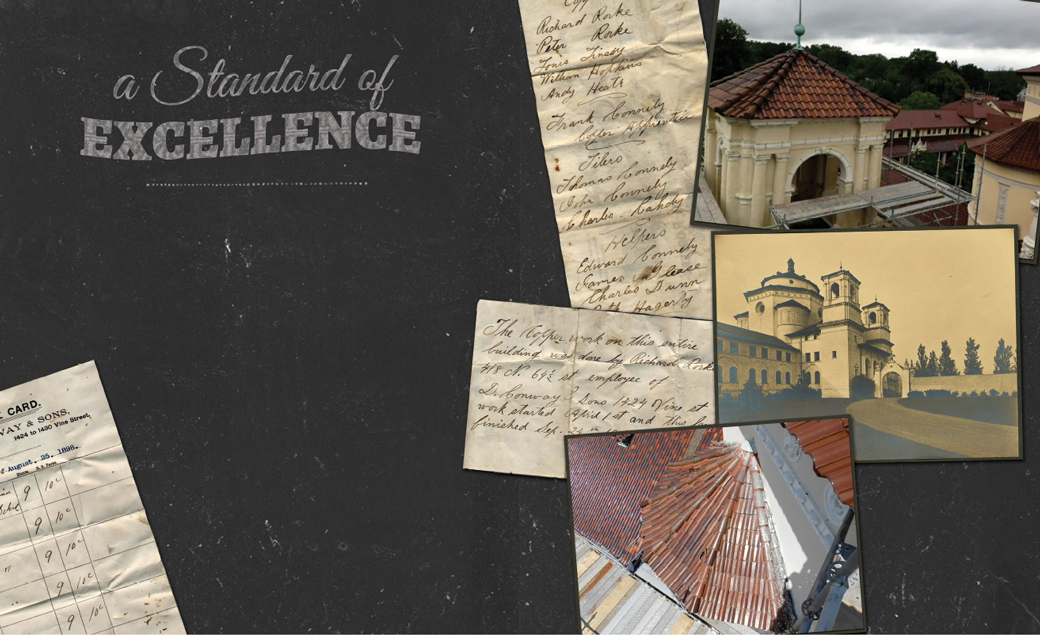The 113th Congress is scheduled to reconvene soon after the Nov. 4 elections in a so-called "lame duck" session to wrap up unfinished business before the end of the year. How much may be accomplished is uncertain, but issues of importance to the roofing industry could be addressed.
What it means
Lame duck sessions occur when Congress meets between Election Day in November and the beginning of the newly elected Congress in January. Members of Congress who are retiring at the end of the year or who have been defeated in the election continue to cast votes on legislation or other matters brought before the House and Senate during a lame duck session.
Once relatively rare, lame duck sessions have become a regular occurrence during the past two decades. Between 1940 and 1992, there were only 10 lame duck sessions. But since 1994, there have been nine such sessions with another to follow this year. This primarily is the result of an increasingly polarized political environment that has made it more difficult to address problems and conduct the nation's business in a bipartisan manner.
When Congress reconvenes after the elections this year, the primary domestic issues lawmakers are expected to focus on are budget- and tax-related.
The issues
First, lawmakers must finalize the federal budget for fiscal year 2015, which began Oct. 1. In September, Congress approved a continuing resolution to extend existing budget authority through Dec. 11 to avoid a partial government shutdown Oct. 1. The continuing resolution is a stopgap measure that replaces traditional governing in which Congress approves 12 appropriations bills that reprioritize funding for federal agencies.
During the past decade, the congressional appropriations process has completely broken down as lawmakers with highly divergent views about the role of government have been unable to agree on spending levels and policies. This year, Congress did not pass a single appropriations bill.
Alternatively, lawmakers may approve an omnibus bill that contains all 12 appropriations bills. An omnibus appropriations bill has the benefit of reprioritizing funding for federal agencies but will not receive the same level of scrutiny or opportunity for amendment as individual bills. An omnibus bill also presents a greater opportunity for Congress to include policy riders that restrict certain regulations, and it is possible an amendment pertaining to the Occupational Safety and Health Administration's proposed silica rule could be considered.
Another area Congress may address during the lame duck session is tax policy. At the end of 2013, the statutory authority of 55 provisions in the U.S. tax code expired, and Congress must reauthorize them if taxpayers are to continue using them to reduce tax liability.
In April, the Senate Finance Committee approved legislation to extend all expired provisions for two years (retroactively for 2014 and through the end of 2015). In this bill, "Expiring Provisions Improvement Reform and Efficiency Act," or EXPIRE Act, the threshold for Section 179 expensing for small businesses is kept at $500,000 and bonus depreciation for many assets is extended. The deduction for energy-efficiency upgrades to commercial buildings is extended at slightly increased levels and also includes automatic increases in the energy performance standards used to calculate the deduction. The tax credit for residential energy-efficiency improvements is extended at its current level, and language supported by NRCA has been added to ensure all ENERGY STAR®-approved roofing products qualify for the credit—a significant improvement for the roofing industry.
During the lame duck session, Congress may approve the bill. Sen. Ron Wyden (R-Ore.), chairman of the Finance Committee, has called this bill "a bridge to tax reform" that may be attempted by Congress in 2015. However, many House Republicans would prefer legislation to make some expired provisions permanent while not renewing other provisions at all. These lawmakers prefer to make key tax provisions, including the research and development tax credit and Section 179 expensing limits, permanent to provide businesses with greater certainty in tax rules. How this impasse between House and Senate lawmakers is resolved could set the stage for a broader effort to reform the entire tax code in 2015.
Stay informed
NRCA will continue working with lawmakers as Congress considers these and possibly other issues during the 2014 lame duck session. Be sure to subscribe to NRCA E-News and follow NRCA on Facebook and Twitter to keep up to date with the latest news.
Duane L. Musser is NRCA's vice president of government relations.



